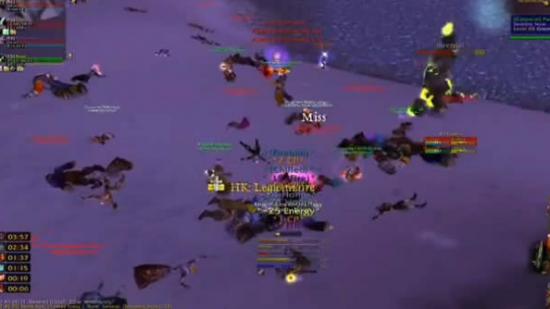For those of us who work and play online, the relationship between anonymity and dickish behavior seems self-evident. Penny Arcade summed up the conventional wisdom on the issue years ago.
But now a new study shows that while anonymity does play a role in encouraging people to cross moral and social lines during online interaction, it also provides evidence that it’s actually their identification with a perceived peer group that mediates the relationship between anonymity and troll-iness. In other words, our online, anonymous behavior really does come down to “everyone else is doing it.”
Boy do we suck.
Researchers were out to provide evidence for “social identity model of deindividuation effects (SIDE)” as it applies to online behaviors. In a word, SIDE argues that the Greater Internet Fuckwad Theory is incomplete: anonymity does not so much undercut the connection to the self and consequences so much as it heightens one’s susceptibility to group norms.
Basically, researchers seeded the Singapore metro with surveys aimed at getting responses from teen gamers. As you might expect from a random survey aimed at getting griefers to be honest about their habits, there were some complications.
“During data screening, unreasonable input, such as people reporting gaming for 24 hours a day and 7 days a week, and people reporting gaming for more than 7 days a week, 24 hours a day and missing data were excluded,” the authors write, oblivious to the kind of 24-7-365 lifestyle that we lead here in video games.
What they were looking at in particular are the gamers who are not playing with their “in real life” friends, but are instead interacting with their fellow gamers as nothing more than a handle. The authors admit that’s a limited definition of anonymity, but it sufficed for their purposes here. In fact, what they were trying to isolate was the degree to which players identified themselves as a part of a group, and then how that affected their behavior with regard to cheating in games.
The bleak part, however, is that the group identification did not lead people to be more observant of norms, but actually to cheat more in games.
“When players immerse themselves in the gaming community/culture anonymously and identify with the gaming community, they tend to cheat more frequently in games. Therefore, over time, game cheating becomes a common practice within the online gaming community, affecting even newly joined game players/community members,” the paper says.
Now you could envision a world where this effect works to the greater good, and maybe you’re a part of a few gaming communities where that’s the case. But what’s a bit sad here, and rather scary, is the implication that the crappy norms of internet culture are in fact self-perpetuating. Players joining a game are quick to adapt to its standards for behavior, and where that behavior is toxic, you will see people become toxic themselves.
“An online group, despite its fluid, unstable and imaginary nature, is powerful in constructing and changing its members’ attitudes and views on behaviours. Hence, a behaviour that is perceived as problematic and deviant can be reconstructed with a different interpretation.” In this case, “being a jerk” is just “fitting in.”
The study from Vivian Hsueh-Hua Chen and Yuehua Wu, researchers at Nanyang Technological University in Singapore and Shanghai Jiao Tong University, is called, “Group identification as a mediator of the effect of players’ anonymity on cheating in online games”, and you can read the entire thing for free here. It was published in Behaviour & Information Technology.
